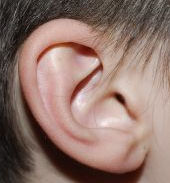 Hearing aids are a remarkably brilliant little invention; thousands of people from all walks of life have had their lives completely changed by them, and could not imagine going back to a life without one.
Hearing aids are a remarkably brilliant little invention; thousands of people from all walks of life have had their lives completely changed by them, and could not imagine going back to a life without one.
Without them, people with hearing problems would not be able to enjoy everyday living as much. If you have good hearing, just try and imagine struggling with each and every conversation, or being completely unable to hear the morning birdsong.
It’s not a fun prospect.
Hearing aids are so important in this day and age. To put it simply, they allow those who suffer from serious hearing problems to participate in the same world as everyone else; it puts them on a level playing field and opens a whole load of new doors for them.
If you have recently found out that you need a hearing aid, you may be saddened by the news. However, this shouldn’t be the case: your hearing is about to get seriously improved!
When it comes to initially choosing your hearing aid, things can get a little tricky; there are a number of different models and designs, and they also come in two “flavours”: analogue and digital.
To try and cut back on the confusion, we have come up with this guide. Both analogue and digital have their own advantages; it is up to you to choose which type you think will be best for you. Once you’ve read our little article, if you still have any questions or concerns, you should ask your audiologist for some further advice.
Analogue Hearing Aids
Analogue is the type that the original hearing aids used. It was the first created, and as such is more traditional. Their purpose is simple: they amplify sound. In this regard, they amplify all sound equally, pretty much as we would hear things normally. Essentially, what they do is take the sound and make it louder.
The main advantage of an analogue hearing aid has to do with comfort; most users of analogue models are people who have worn them for a long time, and are therefore used to it, not wanting to change.
There is one more advantage to the analogue, and that is that they tend to be a little cheaper. However, that comes at a cost: they are not as effective as their digital counterparts.
Digital Hearing Aids
The digital model is by far the more common of the two, and for good reason: it’s much more reliable. They receive the sound, convert it into digital data, then play it into your ear through the amplifier. If you are unsure what this involves, simply ask the audiologist at your local Boots Hearingcare.
They are more advanced than the analogue hearing aids, and offer a lot of flexibility with various sound settings. They are “intelligent”; this means that they can tell what sort of situation you are in and adjust the sound automatically; for example, amplifying voices close to you when you are in a noisy party environment.
Digital hearing aids also eliminate the common analogue problem of the high-pitched feedback “whistle”, one less thing to worry about!
Leave a Reply